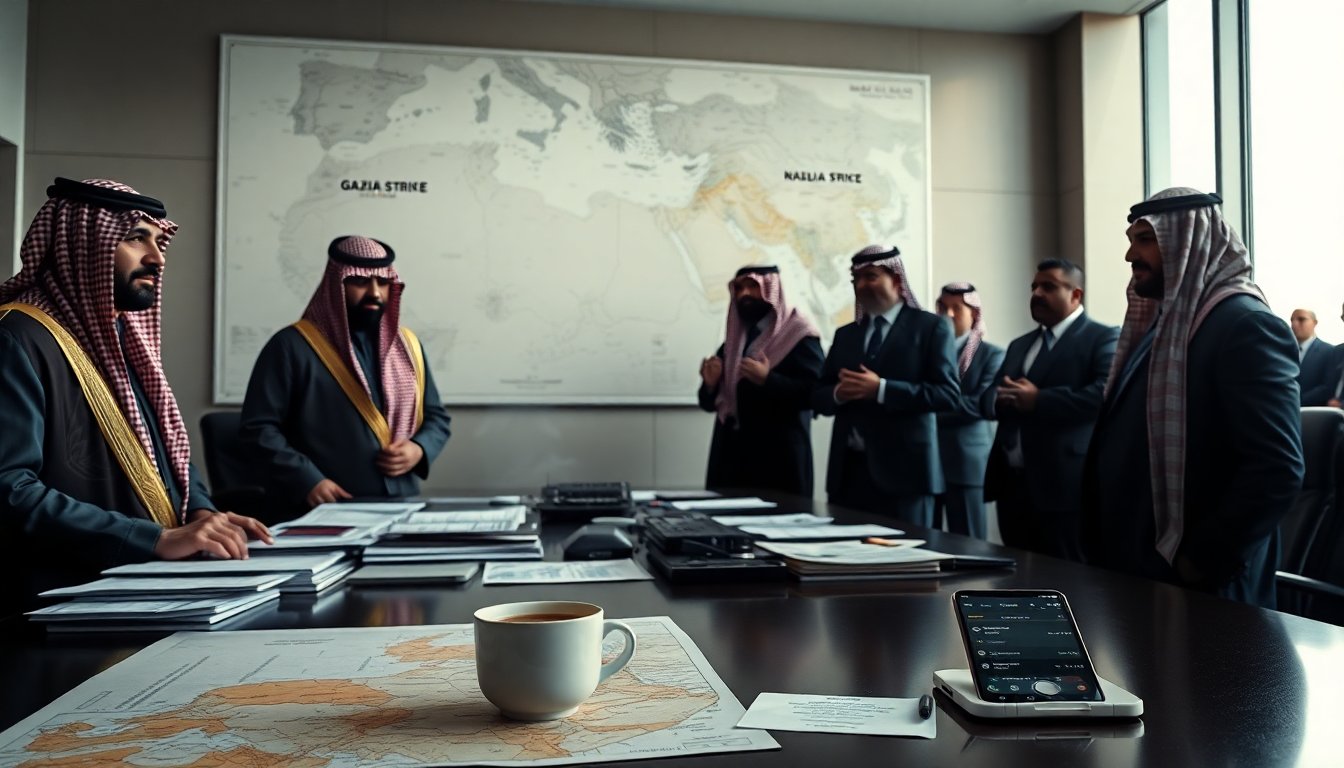Table of Contents
In a significant diplomatic stance, the foreign minister of Saudi Arabia has publicly denounced the military operations carried out by Israel in the Gaza Strip. This condemnation reflects ongoing tensions in the region and highlights the growing concern among Arab nations regarding the humanitarian crisis resulting from the conflict.
Recent events have further escalated the situation, as numerous countries and international figures express their disapproval of Israel’s actions. The Saudi government’s vocal opposition aligns with a broader call for peace and stability in an area plagued by violence for decades.
International perspectives on the Gaza conflict
The Israeli military’s operations in Gaza have drawn sharp criticism not only from Saudi Arabia but also from various global leaders. International organizations and human rights advocates have condemned the attacks, labeling them as disproportionate and detrimental to civilian lives. As the situation evolves, voices from around the world are uniting to call for an immediate ceasefire.
Recent statements from US actress Jennifer Lawrence, who has openly characterized the situation as a genocide, resonate with many who view the humanitarian impact as unacceptable. Her remarks underscore a growing trend of celebrities and public figures leveraging their platforms to raise awareness about global crises.
Regional implications of the conflict
The fallout from the conflict in Gaza extends beyond the immediate area, affecting diplomatic relations within the Middle East. Countries like Qatar have found themselves embroiled in discussions surrounding the violence, with accusations flying about the involvement and responsibility of various regional players.
Saudi Arabia’s condemnation of Israel’s actions comes at a time when tensions are already high. The foreign minister’s remarks not only highlight the kingdom’s stance but also emphasize the importance of a unified Arab front in advocating for the rights of Palestinians. This solidarity is crucial in a region where political alliances can shift rapidly.
Sanctions and global responses
In a related development, Iran has reacted strongly to the reinstatement of long-standing UN sanctions. The Iranian government has characterized the recent vote as illegal, expressing outrage at what they see as a violation of their sovereignty. This situation presents an additional layer of complexity to the ongoing tensions in the Middle East, as countries reassess their positions in light of new sanctions.
The imposition of sanctions on Iran is seen by many as a tactic to curb its influence in the region, particularly regarding its support for groups involved in the Gaza conflict. With the United States planning to revoke the visa of the Colombian President after his comments during a Gaza protest, the international community is witnessing a ripple effect of diplomatic repercussions stemming from this crisis.
The role of media during conflict
As violence continues, media outlets have found themselves in precarious situations. An Israeli airstrike recently targeted an area close to a crew from Al Jazeera, illustrating the dangerous environment in which journalists operate while trying to cover the unfolding events. The attack on media personnel raises serious questions about the safety of those reporting on conflicts, emphasizing the need for robust protections for journalists.
The conflict’s portrayal in the media also shapes public perception globally. Social media platforms are flooded with images and reports that evoke strong emotional responses from viewers, influencing public opinion and further complicating the political landscape.
Calls for peace and resolution
Recent events have further escalated the situation, as numerous countries and international figures express their disapproval of Israel’s actions. The Saudi government’s vocal opposition aligns with a broader call for peace and stability in an area plagued by violence for decades.0
Recent events have further escalated the situation, as numerous countries and international figures express their disapproval of Israel’s actions. The Saudi government’s vocal opposition aligns with a broader call for peace and stability in an area plagued by violence for decades.1


